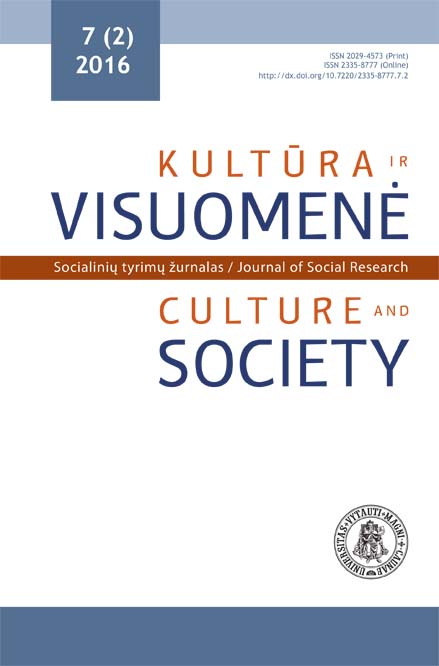Nevyriausybinės organizacijos: Trečiasis sektorius; Socialinė gerovė; Gerovės valstybė
The Third Sector and Social Welfare: the Role of Non-Governmental Organizations in the Welfare State
Author(s): Jurgita VorevičienėSubject(s): Civil Society, Family and social welfare, Welfare services
Published by: Vytauto Didžiojo Universitetas
Keywords: Non-governmental organizations; The third sector; Social welfare; Welfare state;
Summary/Abstract: The article discusses the role of non-governmental organizations (NGOs) in terms of their economic operations and service provision in a welfare state. The concept, development and classification of NGOs are briefly reviewed because third sector organizations are integral to the development of democracy, engagement of civil society and the existence (or lack) of cohesion and solidarity. NGO participation is significant in guaranteeing social welfare since a society devoid of social welfare is an excluded and scattered one imbued with citizens’ unfulfilled expectations and closed-mindedness. Such a state could not be considered a welfare state that ensures safety to its citizens, individual freedoms and social unity. The author argues that in comparison to other Western European countries, Lithuania is still developing its third sector and its traditions. The noticeably strong engagement of community in civic activities allows the author to make an assumption that the Lithuanian NGO sector might become active in the future and it might include a larger part of the society ranging from the civic-minded youth to other age groups and social strata. The author argues that individualism should not be treated as the worst vice of modern society. On the contrary, individualism as a feature of modern community could become advantageous if properly used and channeled towards the pursuit of innovation in both the third and other sectors interested in social welfare. The results of the analysis also demonstrate that the NGO sector in Lithuania differs from the one prevalent in other Western European countries because it grows slowly and unevenly. However, its growth has been intensifying due to the strengthening of civil society and the invention of new traditions of civic activism.
Journal: Kultūra ir visuomenė: socialinių tyrimų žurnalas
- Issue Year: VII/2016
- Issue No: 2
- Page Range: 49-71
- Page Count: 23
- Language: Lithuanian

